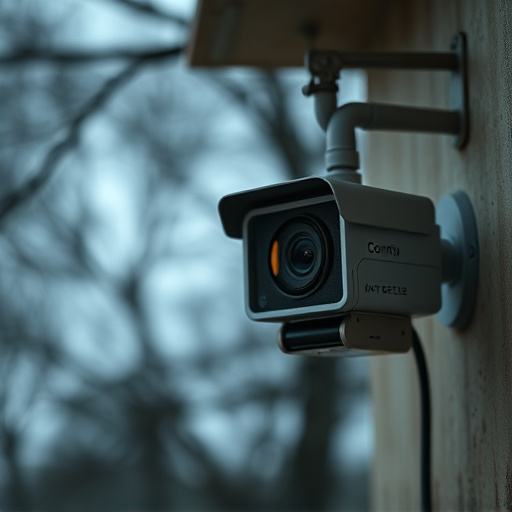Hidden camera laws in the US vary significantly state-by-state, impacting personal and professional use cases. To avoid legal issues, individuals and businesses must understand local regulations, which range from stringent consent requirements to more permissive frameworks with exceptions. Key practices include observing high-privacy areas for unusual devices, using specialized detection equipment, staying informed about legal protections, and adhering to ethical guidelines such as transparent communication, informed consent, limited data collection, and respect for personal boundaries. Non-compliance can result in lawsuits or criminal charges.
Uncover the insidious world of covert recordings with our comprehensive guide. “Covert Recording Spot Identification Methods” explores the intricate balance between privacy rights and hidden camera laws, offering a state-by-state overview of legal nuances. From practical tips to identify potential recording spots to the ethical implications for security professionals, this resource equips you with knowledge to navigate this complex landscape. Discover the latest advanced detection techniques and best practices for maintaining a delicate privacy equilibrium.
- Understanding Hidden Camera Laws: A State-by-State Overview
- Identifying Potential Covert Recording Spots: Practical Tips
- Legal Implications and Rights of Individuals
- Advanced Detection Techniques for Security Professionals
- Ethical Considerations and Best Practices for Privacy Awareness
Understanding Hidden Camera Laws: A State-by-State Overview
The laws surrounding hidden camera usage vary significantly from state to state in the US, reflecting a complex interplay between privacy rights and surveillance capabilities. Understanding these regulations is crucial for individuals and businesses alike, as violations can lead to severe legal consequences. For instance, some states like California have stringent rules, prohibiting the use of hidden cameras without explicit consent, while other states offer more permissive frameworks allowing certain types of covert recording under specific circumstances.
When navigating Hidden Camera Laws by State, it’s essential to be aware that consent plays a pivotal role. This includes obtaining permission from all parties involved in the recording or relying on specific exceptions for law enforcement or business operations. Staying informed about these legal nuances is vital to ensure compliance and protect against potential lawsuits or criminal charges related to improper use of hidden cameras.
Identifying Potential Covert Recording Spots: Practical Tips
Identifying potential covert recording spots involves a combination of keen observation and knowledge of local laws, particularly the Hidden Camera Laws by State. Start by examining areas where privacy is naturally expected to be high, such as bathrooms, changing rooms, and private offices. Look for any unusual devices or setups that might indicate a hidden camera, like tiny lenses in corners or mysterious electronic equipment tucked away.
Practical tips include using professional equipment like thermal imaging cameras or specialized detectors designed to identify covert recording devices. It’s also wise to stay informed about the legal protections against hidden cameras in your area. Many states have specific Hidden Camera Laws that outline permissions and consequences, so understanding these regulations can help you avoid unknowingly entering areas equipped with illegal surveillance gear.
Legal Implications and Rights of Individuals
When it comes to covert recording, understanding the legal landscape is paramount. The rights of individuals and the specific rules governing hidden camera use vary significantly from state to state in the U.S. While some states have strict prohibitions against recording conversations or private spaces without consent, others have more permissive laws. It’s crucial for anyone considering using covert recording techniques to familiarize themselves with the Hidden Camera Laws by State to ensure compliance and avoid potential legal repercussions.
The privacy rights of individuals are a central concern in this area of law. Unauthorized recording can be seen as an invasion of privacy and could lead to civil lawsuits or criminal charges, depending on the circumstances. For instance, recording conversations without all parties’ knowledge may violate wiretapping laws. Furthermore, placing hidden cameras in areas where individuals have a reasonable expectation of privacy, such as bathrooms or changing rooms, is often strictly prohibited and can result in severe legal consequences.
Advanced Detection Techniques for Security Professionals
Security professionals often find themselves in a delicate balance when it comes to covert recording, especially with varying Hidden Camera Laws by State. Advanced detection techniques have become indispensable tools in their arsenal, enabling them to identify potential surveillance devices in sensitive environments. These methods involve cutting-edge technology and a deep understanding of the legal framework surrounding hidden cameras. By employing thermal imaging, specialized radar systems, and advanced audio analysis software, professionals can detect unusual activity or concealed recording equipment that might go unnoticed by the average person.
Staying abreast of local Hidden Camera Laws by State is crucial for these experts to ensure they conduct searches legally and ethically. Different states have distinct regulations regarding hidden cameras, with some prohibiting their use in certain situations, such as private residences without consent. Security professionals must be adept at navigating these legal intricacies while employing sophisticated detection methods, ensuring the integrity of their investigations and the protection of privacy rights.
Ethical Considerations and Best Practices for Privacy Awareness
When employing covert recording techniques, it’s paramount to navigate a complex landscape of ethical considerations and privacy laws, with variations across different states in the US. Understanding Hidden Camera Laws by State is a critical step for ensuring compliance and maintaining integrity. Engaging in such practices without proper authorization can have severe legal repercussions.
Best practices for privacy awareness involve transparent communication about surveillance whenever feasible, obtaining informed consent from individuals being recorded, and limiting data collection to what is strictly necessary. Respecting personal boundaries and privacy rights not only avoids legal issues but also fosters a culture of trust and ethical conduct.
Understanding and adhering to local Hidden Camera Laws by State is essential for both individuals and security professionals. This guide provides practical insights into identifying potential covert recording spots, navigating legal implications, and ensuring ethical practices for privacy awareness. By following the best practices outlined here, readers can better protect themselves and foster a more secure environment while respecting individual rights in the digital age.
